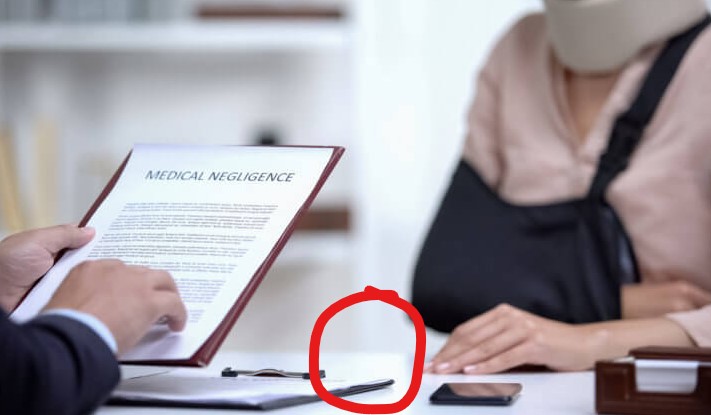
Can student loans be discharged in bankruptcy? If you find yourself burdened by student loan debt and facing financial hardship, you may wonder if there’s a way to include it in your bankruptcy filing. The good news is that, under certain circumstances, it may be possible to demonstrate “undue hardship” and have your student loans discharged by a court. However, it’s important to note that this process is not straightforward. If you’re facing financial struggles and contemplating bankruptcy, here’s crucial information you need to know.
Can You File Bankruptcy for Student Loans?
The process of obtaining a student loan discharge during bankruptcy can be complex. According to the law, bankruptcy trustees are required to prioritize certain debts for payment, which can include non-priority debts like child support, alimony, unpaid taxes, and criminal fines. Priority debts are generally not eligible for discharge, but there is a possibility for relief with non-priority debts.
Removing student loans from Chapter 7 bankruptcy can be challenging unless you can demonstrate that your student loan debt has caused undue hardship for you and your dependents. Exceptions can be made under these circumstances.
Recently, the U.S. Department of Justice and the U.S. Department of Education issued new guidelines for attorney handling bankruptcy cases involving student loans. These guidelines aim to improve the fairness and transparency of the bankruptcy process, providing borrowers with better information regarding their eligibility for discharge.
How to Discharge Student Loans in Bankruptcy
Bankruptcy is a lengthy and challenging process that carries significant implications. If you have explored all available avenues for financial relief and found no viable alternatives, bankruptcy may become your sole option. To initiate the process, you can begin by following these steps.
1. Work With a Lawyer
While it is possible to declare bankruptcy on your own, it is highly recommended to seek the assistance of an attorney to navigate the process. A bankruptcy attorney can provide valuable guidance, ensuring the efficiency of the proceedings and safeguarding your consumer rights.
During your consultation with an attorney, be sure to discuss your student loans and inquire about their expertise in assessing the potential for discharge in your specific circumstances.
2. Choose If You Will File Chapter 7 or Chapter 13 Bankruptcy
Both Chapter 7 bankruptcy and Chapter 13 bankruptcy are effective ways to get you relief. However, they work in very different ways.
- Chapter 7: Also referred to as liquidation bankruptcy, involves the sale of certain assets to repay a portion of your debts. Any remaining debt will be discharged. To qualify for Chapter 7 bankruptcy, you need to pass a means test. While it provides an opportunity for a fresh financial start, the bankruptcy record will stay on your credit report for 10 years.
- Chapter 13: Also known as personal reorganization bankruptcy, allows for the restructuring of debts, enabling you to make affordable monthly payments over three to five years, depending on your financial situation. Any unpaid debts will be discharged. Although Chapter 13 bankruptcy takes longer to complete, it has a comparatively lesser impact on your credit history. It remains on your credit report for seven years.
3. Filing an Adversary Proceedings
A separate bankruptcy proceeding can be specifically filed to address your student loan debt. In this process, you will petition the court to recognize that continuing with the debt would impose an undue hardship upon you and your family.
When applying for student loan discharge based on hardship, it is necessary to provide evidence of the hardship you have experienced. This can be achieved by detailing in your adversary proceedings how your student loan payments have caused undue hardship. It’s important to note that the criteria for demonstrating undue burden can vary among different courts, making it a challenging standard to meet universally.
Courts typically employ two tests to assess whether you are experiencing undue hardship due to your student loan payments. Additional tests may be utilized by the court to determine your eligibility for including student loans in your bankruptcy discharge, but these two are the most commonly employed standards.
Brunner Test
The Brunner Test allows you to discharge student loans when filing for bankruptcy if three factors are present.
- Poverty: Making your loan payments would prevent you from maintaining the minimum standard of living necessary for yourself and your dependents, given your income and expenses.
- Persistence: Your current financial situation is expected to remain relatively unchanged for a significant portion of the repayment period for your student loans.
- Good Faith: You have consistently made genuine and sincere efforts to repay your student loans in good faith.
The Totality of Circumstances Test
The court will use this test to review all relevant factors in your case and determine if an undue burden exists. The court will decide based on the information provided by you.
Alternatives to Student Loan Bankruptcy
Consider other options to reduce your student debt or pay it off with more affordable terms if you don’t qualify for a discharge.
Income-Driven Repayment Plans
You may be eligible for one of four income-driven repayment plans if you hold federal loans. These plans enable you to lower your monthly payments to a percentage based on your discretionary income and extend the repayment period for up to 25 years. By availing of these revised loan terms, you can potentially manage your student loan payments without resorting to bankruptcy. Furthermore, if you still have an outstanding balance after the repayment period, it may be eligible for forgiveness.
Deferment or Forbearance
You may be eligible for forbearance or deferment of your student loan payments if you are facing temporary financial difficulties. Both federal student loans and certain private student loan options offer these alternatives.
Deferment or forbearance allows you to temporarily halt your monthly payments for a predetermined period, although the specifics can vary depending on your lender and individual circumstances. It is important to note that interest will continue to accrue during this time, and you will be required to repay it later. However, if you are currently in need of relief, it may be worthwhile to consider these options.
Student Loan Repayment or Forgiveness Assistance
You may be eligible for loan forgiveness or repayment assistance based on your chosen career. Additionally, you can explore programs such as Teacher’s Loan Forgiveness, Public Service Loan Forgiveness, or other repayment assistance options that align with your specific occupation.
Prevent Credit Damage by Taking Early Action
Take proactive measures if you are uncertain about your ability to make payments on your student loans. Acting early will help you avoid defaulting and falling behind on payments, as both situations can have adverse effects on your credit score and make it more challenging to secure favorable credit terms.
Contact Tenina Law Today for a FREE Consultation
If you’re grappling with the question of whether student loans can be discharged in bankruptcy, Tenina Law has the answers you need. Our experienced team of legal professionals is well-versed in the complexities of bankruptcy law, including the nuances surrounding student loan discharge.
We understand the financial burden that student loans can place on individuals, and we are dedicated to exploring every possible avenue for relief. Trust Tenina Law to provide you with the knowledgeable guidance and personalized solutions you deserve.
Contact us today for a consultation and let us help you navigate the challenging terrain of student loan debt and bankruptcy.







[…] legal professionals will give you honest answers that can help you make the right […]
[…] number was 10.2% for workers aged 35-44. The top reasons included child support, consumer debts, student loans, and […]